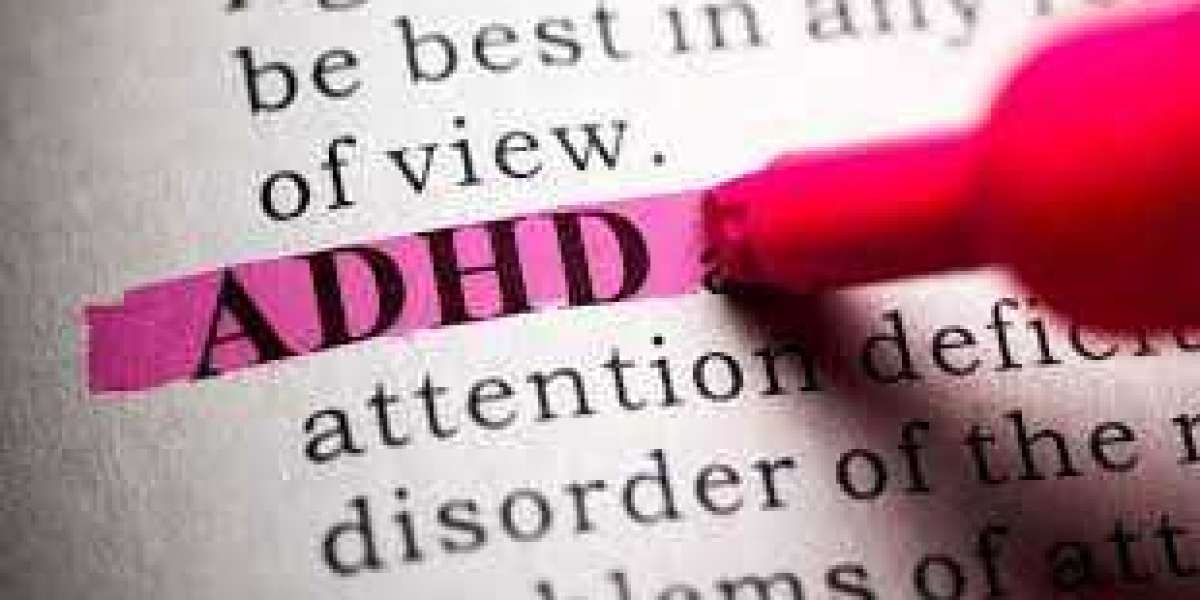Attention deficit hyperactivity disorder (ADHD) sufferers may find that behavioral treatment helps them control and modify the behaviors that are stressing and giving them problems. Symptoms of ADHD can cause a range of behaviors that can make routine tasks seem difficult or even impossible. Those with ADHD who receive behavioral therapy are able to better control their symptoms and form new, beneficial behaviors. Behavioral therapy is frequently included in treatment plans for ADHD and may be used in conjunction with medication.
For ADHD, what is behavioral therapy?
The symptoms of ADHD can make it challenging for a person to succeed in daily duties, employment, or education. People with ADHD can learn skills in behavioral treatment that help them manage tasks and control their symptoms. Replacing bad behaviors with positive ones is the aim of behavioral therapy. In order to do this, behavioral therapy teaches techniques to enhance problematic domains including focus, organization, and impulse control.
Behavioral therapy can be a helpful way for some people to control their symptoms of ADHD without the need for medication. Some persons combine medication and behavioral therapy.
Parents or guardians are involved in the behavioral therapy process when their children receive ADHD treatment. Families will use behavioral treatment strategies at home and at school, and therapists will collaborate with families to develop goals. The Centers for Disease Control and Prevention (CDC) state that children with ADHD can benefit from behavioral and cognitive behavioral treatment for a reduction in symptoms. Adults with ADHD who receive behavioral therapy typically receive cognitive behavioral therapy (CBT). Adults with ADHD may find that CBT helps them understand how their own ideas influence their actions. It is effective in helping adults with ADHD reframe their ideas in order to increase their positive behaviors and gain greater control over their symptoms.
How does children's behavioral therapy for ADHD function?
Behavioral treatment for ADHD kids employs a whole-family strategy to modify behaviors. The goal of any behavioral treatment is to influence a person's behavior. Behavioral therapy for ADHD kids also examines the way a child's family responds to their bad behavior. Parents of children with ADHD frequently unknowingly encourage bad behavior in their kids. Youngsters will pick up new abilities and strategies for handling things that could be difficult for them, like doing their daily chores, paying attention in class, doing their schoolwork, and maintaining their rooms tidy. Parents will discover fresh ways to support their ADHD child's success as well as the reasons why some tactics don't work. The therapist will present fresh approaches to controlling undesirable habits and rewarding favorable ones.
Locating a behavioral therapy provider for ADHD
If you believe that you or your child could benefit from behavioral treatment, it's critical to select the best therapist. If you're unsure about where to begin, have a look at the advice below: For recommendations, ask the pediatrician about your child. Consult your child's school for suggestions. Seek advice from the counselors or social workers involved if your child is receiving in-school accommodations for ADHD under an IEP or other plan. Consult your primary care physician for suggestions. Look up CBT practitioners that treat adults with ADHD in your area online. Utilize the professional directory of Children and Adults with Attention-Deficit/Hyperactivity Disorder (CHADD) to locate therapy in your area.
What to anticipate from children's behavioral therapy for ADHD
Goals will be discussed when you and your child meet with the therapist for the first time. You will discuss which behaviors present the greatest difficulties. Your therapist will assist you in developing a strategy to address those behaviors. When kids finish projects and receive prizes, they should be congratulated and supported. They will not receive those points if duties are not finished. It is crucial that they not be penalized or humiliated for failing to finish assignments. That means you don't get a point. Additionally, your child will see the therapist once a month on average. They'll pick up abilities that will enable them to finish the activities listed on the chart. They will pick up techniques that will help them more easily accomplish their objectives at home and in the classroom. They will also get better self-control and anger management skills.
How can you tell whether your child is benefiting from behavior therapy for ADHD?
An excellent tool for tracking the effectiveness of behavior treatment is the chart that you and your child's therapist create. Your child is benefiting from behavior therapy if they are acting in a positive way and receiving incentives.
The lifelong skills that children acquire in behavioral therapy are transferable. That may have a significant effect on their adult independence and success.
How do schools implement behavior therapy?
Involving your child's teacher in their therapy and plan is crucial, particularly if they have objectives connected to their education. In this manner, educators may monitor work completion and notify parents of any updates. This can assist kids get better by providing them with daily feedback on how they're doing in school. Some kids gain advantages from a particular at-school charting method. Together, you and your child's teacher can arrange for this. Teachers typically complete a daily report. A list of in-class assignments or constructive actions your child needs to engage in will be included in the report. Their teacher will mark whether or not each assignment or behavior was completed each day. If your kid gets enough points on their daily report card when they get home, they can then receive a small incentive.
How does adult behavior treatment for ADHD function?
Adult behavioral therapy has a slightly different form. Adults with ADHD have distinct difficulties and require distinct approaches. Adults with ADHD frequently experience difficulty with motivation, time management, disorganization, and mood regulation. Low self-esteem, high levels of stress, persistent depressive moods, and other negative thought patterns are frequently brought on by this. Adults with ADHD may struggle to believe that things will ever work out or that they will ever achieve, and they may even believe that their troubles are their own fault. CBT can assist adults with ADHD in overcoming these unfavorable cognitive patterns. CBT can assist you in reframing your ideas rather than imparting new organizational or task-completion techniques. The intention is to alter harmful habits by altering the mental patterns that give rise to them.








